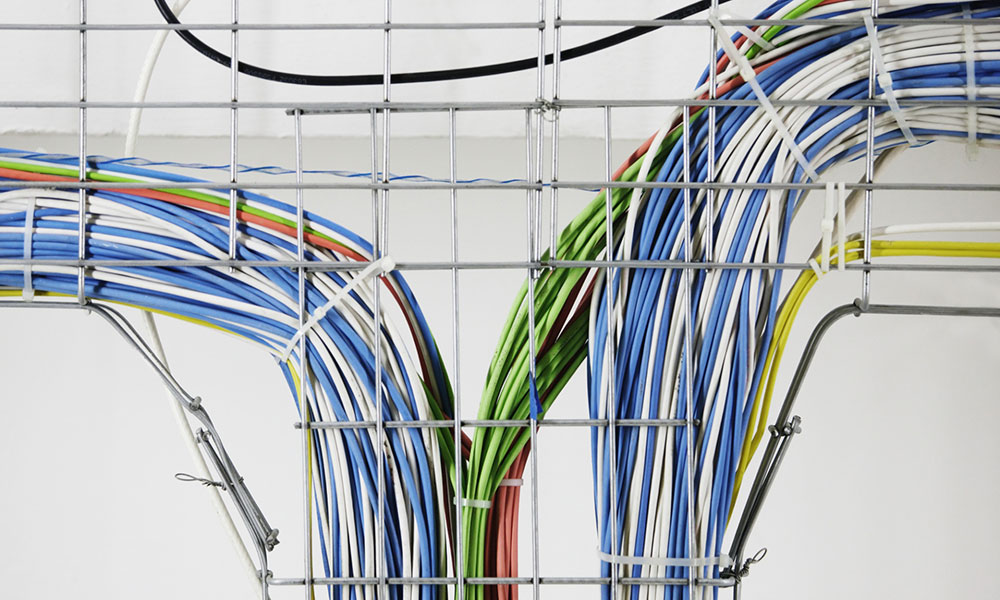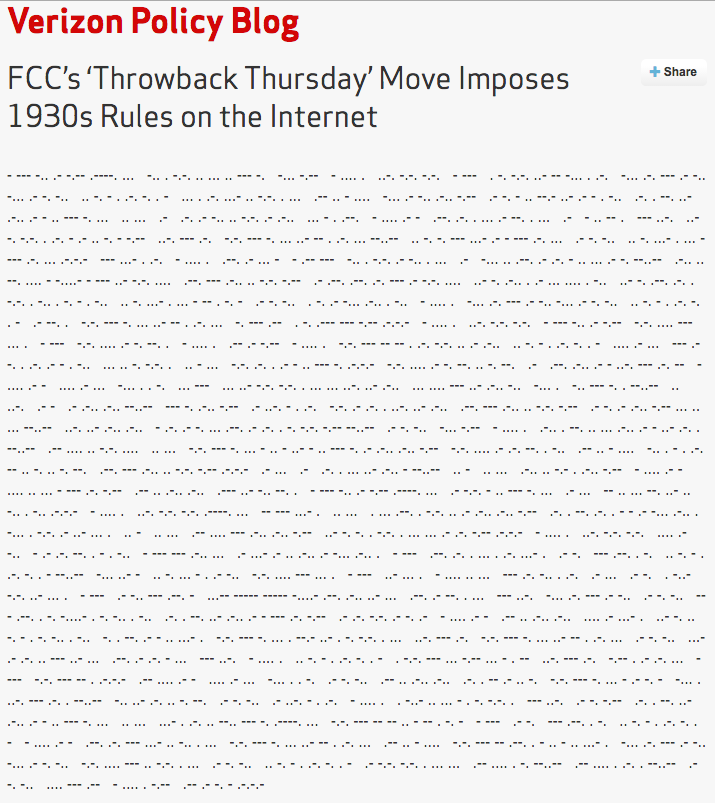
FCC Open Internet Order Ignites Association Passion
The commission's long-expected net neutrality ruling that reclassifies internet service as a public utility drew strong reactions from a variety of associations—and a unique response from Verizon. Long story short? This isn't over yet.
Morse code. Lines and lines of Morse code. That was how Verizon reacted to the the Federal Communications Commission’s (FCC) stringent net neutrality ruling on Thursday.
(Verizon has a major horse in this debate, having been the lead plaintiff in a lawsuit that directly led to the FCC’s ruling.)
To put it lightly, emotions were high when it came to the open-internet debate. It may be one of the biggest regulatory stories in years, with groups as diverse as the NAACP and the National Association of Realtors speaking up about the issue at various points in the past few months.
But the FCC’s move to regulate the internet access as a public utility under Title II of the Communications Act of 1934 is a big shift from where the conversation was less than a year ago, as well as a big conversation starter.
The reason? The reclassification, which treats cable companies like phone service or electricity, is meant to ensure that internet providers can’t take advantage of their market power to control access to independent websites like Netflix or Tumblr.
“We heard from public-interest groups and public-policy think tanks. We heard from Members of Congress, and, yes, the President. Most important, we heard from nearly 4 million Americans who overwhelmingly spoke up in favor of preserving a free and open Internet,” FCC Commissioner Tom Wheeler said in a statement. “We listened. We learned. And we adjusted our approach based on the public record. In the process, we saw a graphic example of why open and unfettered communications are essential to freedom of expression in the 21st century.”
On Thursday, the FCC’s work drew nearly as much conversation as a certain dress and a pair of runaway llamas. Considering the obvious importance of those stories, it’s surprising that net neutrality had the response it did.
Seriously though, read on for some notable association and advocacy group responses to the FCC’s Open Internet Order.
In Favor
The Electronic Frontier Foundation (EFF) applauded the order by the FCC and gave equal credit to the people whose feedback helped inform the FCC decision. “So congratulations, Team Internet. We put the FCC on the right path at last,” the group stated in a blog post. It added a warning, however: “But now we face the really hard part: making sure the FCC doesn’t abuse its authority.”
The Internet Association was similarly happy with the vote, but said it wanted more details before fully committing to the results. “The Internet Association remains outcome-oriented, and it looks forward to seeing the full text of the order to ensure that the end user experience and the free and open Internet is fully protected by the FCC’s action,” IA President and CEO Michael Beckerman said. “Today will not be the end of the discussion.”
Engine, a trade group focused on tech startups, loudly proclaimed on its website that “We won the internet back.” The group, claiming victory on the issue, says that it plans to “continue to harness the incredible energy of our startup community to combat future threats to an open Internet, and to ensure all startups can access the tools they need to thrive.”
Opposed
The National Cable & Telecommunications Association’s President and CEO Michael Powell said that the order went far beyond what it needed to to achieve its goal. “The FCC has taken the overwhelming support for an open Internet and pried open the door to heavy-handed government regulation in a space celebrated for its free enterprise,” he stated.
The American Cable Association, which represents smaller cable providers, threatened court action over the Title II move, which it claims unnecessarily affects its members, which generally support open internet access. “ACA is disappointed with the overall action, but it is most distressed that the FCC acted contrary to the facts,” ACA President and CEO Matthew Polka stated.
CTIA: The Wireless Association, which represents mobile providers, similarly threatened legal action over the order’s extension to mobile broadband service. “The agency’s action runs counter to an express congressional directive prohibiting the agency from treating mobile broadband like a utility service, making today’s decision not only unwise, but unlawful,” the group’s Meredith Attwell Baker stated.
(iStock/Thinkstock)







Comments